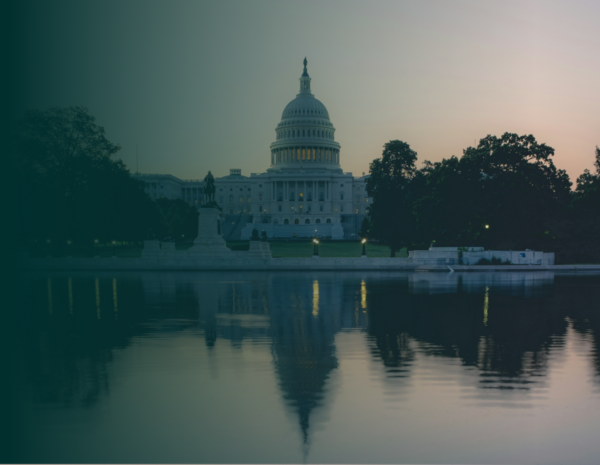Thirty-eight states have kicked off their legislative sessions this month, and another six will begin in the next few weeks. In more than half of these states, legislators will consider issues carried over from 2023 in addition to new proposals. Elsewhere, legislators will start with a clean slate. What are the top state government issues that legislators, lobbyists, and advocates will focus on in 2024?
Legislative trends often emerge in the first few weeks of session. There is so much we can learn from the proposals considered across the country. In 2022, we identified trends in bills regulating discussions of race and gender in schools. That trend grew to be among the most hotly debated national issues this past year. This debate will only continue in 2024. Plural’s industry-leading open data and cutting-edge AI tools streamline and enhance legislative work.
The Biggest State Government Issues in 2024
It would be impossible to build a comprehensive list of the issues that each state will focus on in 2024. Instead, our research has allowed us to build a list of the topics which will be high on most state’s agendas this year. We’ve also identified specific proposals we see gathering momentum around the country.
2024 Elections
Let’s get the big one out of the way first — elections will dominate political news coverage this year. November’s elections will impact state legislative policy in a few distinct ways.
Voting Rights
Many bills related to voting rights will be considered across the country this year. In 2023, more than 1,100 bills expanding or restricting access to voting were introduced. Many of those same bills will come up again in 2024, and we expect hundreds more to be introduced. But prevalence alone does not make this our top legislative trend. The tenor and stakes of these debates will be extremely high. For better or worse, most voting rights proposals will be judged first by their potential impact on the 2024 elections. Advocates on both sides see these issues as central to ensuring a free and fair election.
Culture Wars and Partisan Conflict
Federal elections, particularly the presidential election, will result in the nationalization of state legislative issues. Culture wars and partisan battles will prevail as legislators balance policymaking with politics. Abortion, parental rights in education, LGBTQ+ issues, and firearms regulation are areas we expect to see this dynamic play out.
Session Logistics
Many state legislators themselves will be running for election in November. This being the case, we expect to see more sessions wrap up in a timely manner come spring. Legislators will be itching to get on the campaign trail. Fewer special sessions will take place this fall as election results signal priorities for 2025.
Affordable Housing
Housing affordability and homelessness have become a top issue at state legislatures. We recently wrote about the need for those in the housing space to monitor public policy. We expect to see proposals focused on:
- Affordable housing development
- State funding of shelters and emergency housing
- Continued action legislating the landlord-tenant relationship
Cannabis
At this point, state-level efforts to decriminalize or legalize marijuana are not novel. Despite this, recreational marijuana use remains illegal in just over half of U.S. states. Further, medicinal marijuana use is still prohibited in ten states. In Wisconsin, Hawaii, Florida, and New Hampshire, legalization will have a serious chance at passage this year.
Even in states that have legalized marijuana, the subject remains prevalent. Delaware, Kentucky, Minnesota, and Ohio moved forward on legalization in 2023. However, there are significant intricacies in establishing a lucrative and regulated marijuana industry. Advocates can expect to return to their state houses frequently this year to monitor implementation plans.
Diversity, Equity, and Inclusion (DEI)
DEI policies were an emerging legislative trend over the past few years. This is true especially at universities. In 2023, this trend accelerated. University policies regarding freedom of speech, antisemitism, and racism have garnered attacks from the right.
Utah’s HB 111 would restrict the ability of private employers to require training that includes certain concepts related to race and sex. Utah legislators have already moved the bill out of its committee; it will be voted on by the full House next.
Education
As always, state education committees will be busy this year. Education spending represents a significant portion of every state’s budge. Because of this, debates over spending can seem omnipresent.
About two dozen states must pass a budget by the end of this session. Those that don’t will likely still consider supplemental budget packages. New York Governor Kathy Hochul rolled out a budget that will increase state-provided school funding by more than $800 million. Legislators and interested parties will have their say whether the increase is too significant or not enough. They’ll also weigh in on the allocation of the funds.
Outside of education funding, other issues related to education will be hotly debated. We see continued trends in legislation relating to:
- Parental influence in the classroom
- Race in education
- Dual enrollment
- The expansion or restriction of charter schools
Environment & Climate Change Mitigation
In 2023, California enacted some of the most significant climate-related state action. The legislature passed laws requiring climate reporting by more large companies. As states adjust to meet their climate plans, we expect to see additional legislation. Twenty-four states have established greenhouse gas reduction targets. These states must evaluate their progress and adjust accordingly. Others may consider implementing targets of their own.
As climate change continues, climate-related disasters increase in frequency and impact. Many states find themselves regularly considering how to respond to these tragedies. Hawaii’s devastating fires that took place in August 2023 will be a key focus of the state legislative session. Lawmakers will aid in the recovery of affected communities and victims. Further, they will plan for future fires and other climate-related disasters.
Criminal Justice & Law Enforcement Reform
Criminal justice and police reform efforts have received increased attention in recent rears. The murder of George Floyd and subsequent protests in 2020 catalyzed this focus. Despite progress by advocates, there is certainly more work to be done. This session, legislators in Maryland, Georgia, Minnesota, and California will prioritize justice reform.
Crime rates are decreasing throughout the United States. Despite this, growing public concern persists regarding increased crime rates. We expect some lawmakers to respond to this growing concern.
In Georgia, the development of a massive law enforcement training center has been the subject of debate.. Disagreements between lawmakers, law enforcement, have persisted for years over “Cop City.” Community activists have fought to prevent the construction of Cop City. As development continues, lawmakers have advanced legislation that could further criminalize protest actions. Cop City represents just one clash between those on both sides of the debate over police reform.
Transportation
We will monitor many major transportation issues in 2024. Among these is the continued development of electric vehicle policy. In 2023, some states followed the federal government’s lead in encouraging the adoption of electric vehicles. Tax rebates and other incentives aimed to encourage public entities to make the switch to electric.
While many efforts have been bipartisan, most have been led by Democrats. Some Republicans remain critical of electric vehicles. These lawmakers also oppose any encouraged transition away from gas-powered cars. In 2024, we expect to see increased opposition to electric vehicles in Republican states. This might involve increased fees on electric vehicles and reduced taxes on gasoline.
Using Plural to Track State Government Issues
Hundreds of bills are introduced as sessions kick off. It can be overwhelming to analyze legislative trends in one state, let alone throughout the country. However, keeping track of legislative trends is vital to understanding public policy. Dominant issues and trends started in just one or two states before going “viral” nationwide.
Plural makes the process of identifying and tracking legislative trends accessible and efficient. We’re committed to ensuring that every American can access high-quality legislative data. Using artificial intelligence, we leverage our data to identify trends and patterns.
Interested in learning more? Book a demo today!
More Resources for Monitoring State Government Issues
Key Benefits of AI for Lobbying & Advocacy
Want to be able to explain the benefits of artificial intelligence for lobbying and advocacy? Everyone is talking about AI. And we get it, it’s not simple to understand. But as an AI-powered organization, Plural is here to help you get the most out of advancements in AI to make your job as a policy […]
2025 Legislative Committee Deadlines Calendar
Staying on top of key deadlines is manageable in one state, but if you’re tracking bills across multiple states, or nationwide, it quickly becomes overwhelming. That’s why we created the 2025 Legislative Committee Deadlines Calendar. Stay ahead of important dates and download our calendar today. Get started with Plural. Plural helps top public policy teams get […]
End of Session Report: Florida 2024 Legislative Session
The 2024 Florida legislative session saw significant activity in the realm of insurance and financial services, reflecting key themes of consumer protection, market stability, and regulatory modernization.




